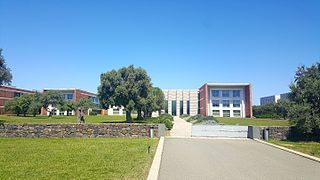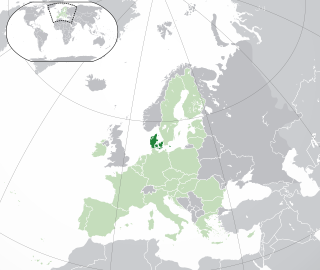Telecommunications in Kyrgyzstan include fixed and mobile telephones and the Internet.

Telia Company AB is a Swedish multinational telecommunications company and mobile network operator present in Sweden, Finland, Norway, Denmark, Estonia, Latvia and Lithuania.

Telenor ASA is a Norwegian majority state-owned multinational telecommunications company headquartered at Fornebu in Bærum, close to Oslo. It is one of the world's largest mobile telecommunications companies with operations worldwide, but focused in Scandinavia and Asia. It has extensive broadband and TV distribution operations in four Nordic countries, and a 10-year-old research and business line for machine-to-machine technology. Telenor owns networks in 8 countries.

An Internet service provider (ISP) is an organization that provides services for accessing, using, managing, or participating in the Internet. ISPs can be organized in various forms, such as commercial, community-owned, non-profit, or otherwise privately owned.

Internet access is the ability of individuals and organizations to connect to the Internet using computer terminals, computers, and other devices; and to access services such as email and the World Wide Web. Internet access is sold by Internet service providers (ISPs) delivering connectivity at a wide range of data transfer rates via various networking technologies. Many organizations, including a growing number of municipal entities, also provide cost-free wireless access and landlines.

Investor AB is a Swedish investment and holding company, considered a de facto conglomerate. It was founded in 1916 and is still controlled by the Wallenberg family through its company FAM AB. The company owns a controlling stake in several large Swedish companies, with smaller positions in a number of other firms.

Tessellis S.p.A. is an Italian telecommunications company founded in 1998 and based in Cagliari, Sardinia, that provides Internet and telecommunications services in Italy, and, previously had operations in other European nations through its acquisition of many smaller European Internet Service Providers (ISPs) in the late 1990s.
Yettel Bulgaria is a mobile network and the third largest fixed telecommunications company in Bulgaria. The company was founded under the name "Cosmo Bulgaria Mobile" in 2001 by OTE and operated under the brand name "Globul" until 2014. In 2013 it was bought by Telenor and changed its name. In August 2018, the company was acquired by PPF, a Czech private investment fund. The company continued to use the Telenor brand until 1 March 2022, when it was renamed to Yettel Bulgaria.

Telenor Sverige, is a mobile phone, IPTV and Internet service provider in Sweden, owned by Telenor. Telenor Sverige's network covers 99 percent of the country's population, with telecom infrastructure sharing on 2G, 4G LTE and 5G NR under the Net4Mobility joint venture with Tele2, and on 3G UMTS with 3 Sverige outside Stockholm, Gothenburg, Malmö, Lund and Karlskrona, where it has its own 3G masts. Today, Telenor Sweden has over 2.5 million mobile subscribers, approximately 645,000 broadband customers and half a million TV customers. Telenor Sweden has a turnover of approximately SEK 13.1 billion (2015) and has approximately 1,900 employees.

The Internet in the United States grew out of the ARPANET, a network sponsored by the Advanced Research Projects Agency of the U.S. Department of Defense during the 1960s. The Internet in the United States in turn provided the foundation for the worldwide Internet of today.

In an international context Denmark is viewed as a somewhat peculiar country when it comes to internet access. The former state owned telephone company TDC owns the entire last mile infrastructure in terms of copper telephone lines and the vast majority of the coaxial cable infrastructure as well. Even though the Danish telecommunications infrastructure is very heavily dominated by one company, Danish internet customers still enjoy fair prices and a wide availability of different next generation access internet connections in comparison with most other EU countries. Furthermore, TDCs de facto monopoly on last mile infrastructure has come under attack. In the last decade regional power companies have formed national business alliances aimed at implementing FTTH for private and business end users.
The Internet in Sweden was used by 94.0% of the population, the fourth highest usage rate in the world, behind only the Falkland Islands (96.9%), Iceland (96.0%), and Norway (95%) in 2015. Sweden ranks 18th and 5th highest in the world in terms of the percentage of its fixed and wireless broadband subscriptions. It has the second fastest average internet connection speed in the world.

The United Kingdom has been involved with the Internet throughout its origins and development. The telecommunications infrastructure in the United Kingdom provides Internet access to businesses and home users in various forms, including fibre, cable, DSL, wireless and mobile.

True Corporation Public Company Limited (TRUE) is a communications conglomerate in Thailand. It is a joint venture between Charoen Pokphand Group and Telenor, formed by the merger between the original True Corporation and DTAC in the form of equal partnership to create a new telecommunications company that can fully meet the needs of the digital age. True controls Thailand's largest cable TV provider, TrueVisions, Thailand's largest internet service provider True Online, Thailand's largest mobile operators, TrueMove H and DTAC TriNet, which is second and third only to AIS. and entertainment media including television, internet, online games, and mobile phones under the True Digital brand. As of August 2014, True, along with True Telecommunications Growth Infrastructure Fund, had a combined market capitalization of US$10 billion. TrueMove is also a partner of Vodafone Group. Charoen Pokphand Group and Telenor hold equal ownership of 30% of True's shares as of March 2023. It operates fixed-line, wireless, cable TV, IPTV and broadband services.
The Internet in Pakistan has been available since the early 1990s. Pakistan has about 124 million internet users, making it the 7th-largest population of internet users in the world. Information and communications technology (ICT) is one of the fastest growing industries in the country. In 2001 just 1.3% of the population used the Internet. By 2006 this figure had grown to 6.5% and in 2012 to 10.0%. As of July 2021; the percentage of internet users in Pakistan is 54%, which translates into approximately 118 million citizens having access to internet.
Glocalnet was a Swedish Internet service provider owned by Telenor.

Voddler was a Stockholm, Sweden-based provider of a video-on-demand (VOD) platform and a streaming technology for over-the-top (OTT) streaming on the public Internet. In Scandinavia, Voddler was primarily known for the commercial VOD-service Voddler, which was launched in 2009. As a company, Voddler was founded in 2005 and developed its own streaming solution, called Vnet. Vnet is based on peer-to-peer (p2p), where all users contribute by streaming movies to each other, but, unlike traditional p2p, Vnet has a central administrator who decides which users that have access to which movies. Due to this exception, Vnet has been referred to as a "hybrid p2p distribution system", "walled garden p2p" or "controlled p2p". In addition to running the consumer service Voddler, the company Voddler also offers, since 2013, Vnet as a stand-alone technology for other streaming platforms. The service Bollyvod, a global VOD-service for Bollywood-content that Voddler built for the Indian movie industry, was released as a pilot in 2014.
Net bias is the counter-principle to net neutrality, which indicates differentiation or discrimination of price and the quality of content or applications on the Internet by ISPs. Similar terms include data discrimination, digital redlining, and network management.

This is a list on countries where at least one internet service provider (ISP) formerly or currently censors the popular file sharing website The Pirate Bay (TPB).










